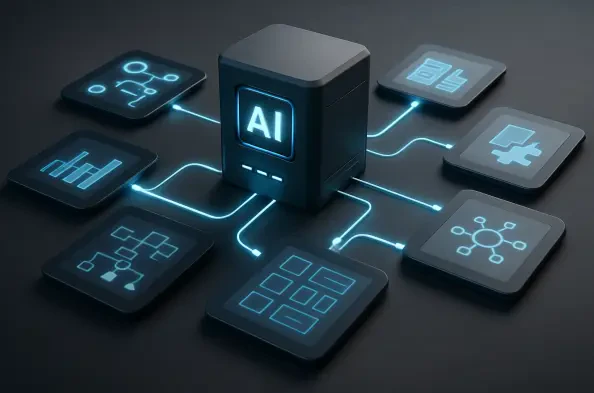In today’s fast-paced digital world, organizations like Accenture grapple with ever-growing complexities in managing multifaceted IT operations. Accenture’s decision to leverage agentic AI, epitomized by its integration platform, the Advanced Technology Agent (AATA), showcases a significant shift in enhancing IT functionality. This innovation has not only streamlined operations but has also paved the way for Accenture to earn the prestigious 2025 CIO 100 Award in IT Excellence, underscoring the transformative impact of integrating AI into business processes.
In-depth Analysis of Features and Performance
Accenture’s AATA redefines the operational landscape with its intelligent orchestration layers. These layers adeptly harmonize IT operations by overlaying traditional automation techniques, such as RPA and CICD pipelines, with AI-driven agents. This modular approach allows Accenture to introduce AI enhancements incrementally, thereby continuously refining its IT workflows. The intelligent orchestration is a central cog in this system, boosting efficiency and acting as a bridge between human resources and automated operations.
The open and agnostic architecture of AATA proves pivotal in tackling the complexities of various digital ecosystems. Designed as an interactive platform, it provides IT teams and end-users with an intuitive interface to address technology challenges. This architecture promotes a user-centric experience, driven by open standards that accommodate a range of generative AI processes and bespoke agent developments. Its flexibility ensures that Accenture’s diverse needs are met without compromising on performance or user engagement.
Recent Advances and Industry Momentum
The AI-powered integration platform is at the forefront of recent trends, reflecting a growing industry inclination toward AI-enabled solutions to cope with talent shortages and increasing technology dependency. AATA exemplifies this trend by introducing over 100 active AI agents that enhance operational outcomes across various facets. This deployment embodies a shift in Accenture’s operational strategy, with performance metrics indicating an 80% increase in provisioning speed and rapid adaptation to agent-based methodologies. In parallel, this strategy highlights the industry’s pivot toward data-centric approaches that prioritize flexible, secure, and efficient data management.
Practical Implementations and Notable Use Cases
AATA’s real-world applications extend across Accenture’s diverse operational landscape, providing tangible benefits. Its mechanisms have revolutionized tasks ranging from VPN configurations, now completed in minutes rather than hours, to complex troubleshooting across the firm’s global workforce. This platform is integral to the workflows of cloud engineers, serving as a copilot, facilitating seamless operations, and reducing the likelihood of error. Accenture’s ability to embrace such innovations sets a precedent for using agentic AI to drive operational excellence and efficiency.
Roadblocks and Constraints
Despite its success, AATA faces inherent challenges, particularly in aligning the cultural shift required for generative AI adoption with the organization’s ethos. This transformation demands continuous innovation while ensuring stringent data management protocols to secure data integrity, compliance, and security across a diverse IT landscape. Furthermore, the effectiveness of this technology relies heavily on pre-existing optimization efforts, highlighting the importance of refining internal processes before pursuing advanced technological integration.
Potential Ahead
Looking forward, agentic AI platforms are poised for continued evolution, with potential breakthroughs in even more sophisticated AI-driven models and enhanced data interoperability. Accenture’s journey with AATA demonstrates a clear trajectory toward robust, AI-enabled IT systems that not only improve operational efficiency but also foster long-lasting digital transformations. Companies adopting similar platforms are likely to see amplified returns as the technology matures, promising substantial impacts on industries across the board.
Conclusion
Accenture’s innovative deployment of AATA was both an impressive strategic initiative and a testament to the potential of AI in IT operations. The successful integration of this platform demonstrated a marked improvement in operational efficiencies and prompted further exploration for its continued evolution. As organizations strive for seamless technological integration, Accenture’s approach will likely influence future innovations, providing valuable lessons for companies facing similar challenges in managing complex digital ecosystems.






